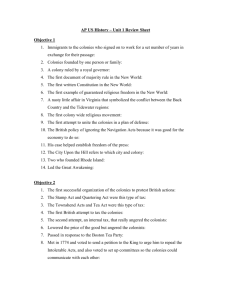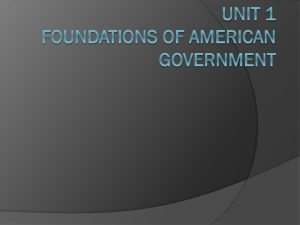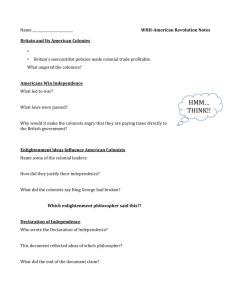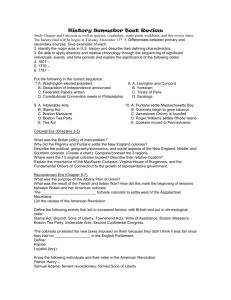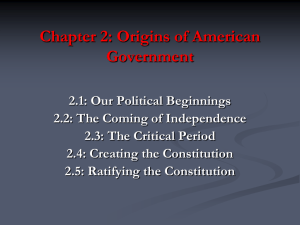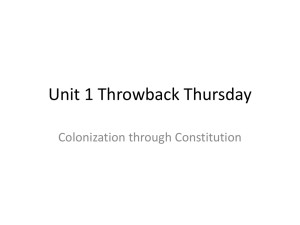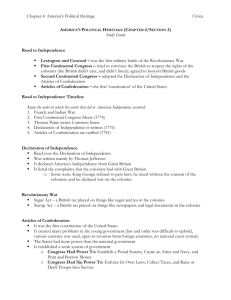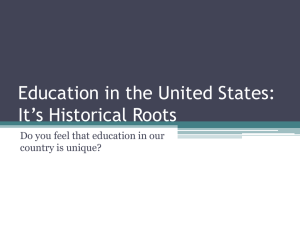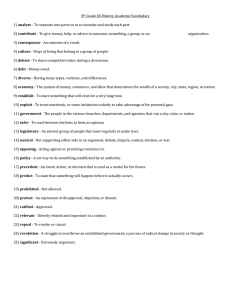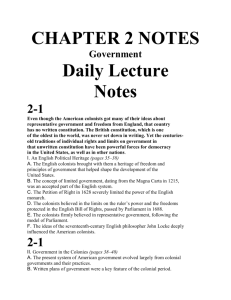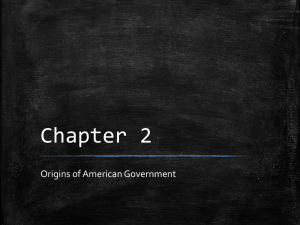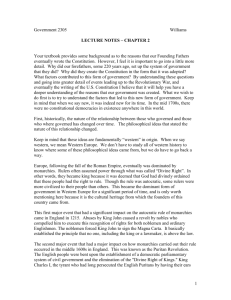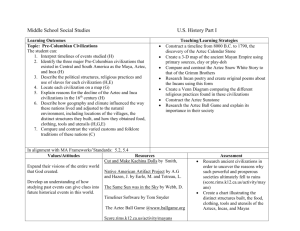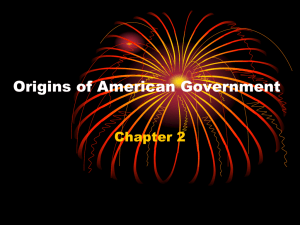Fixing the Problems
advertisement
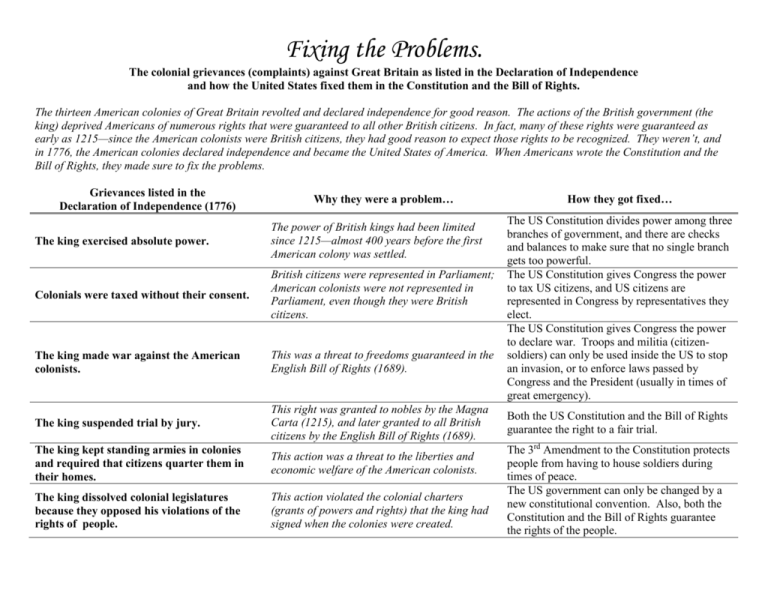
Fixing the Problems. The colonial grievances (complaints) against Great Britain as listed in the Declaration of Independence and how the United States fixed them in the Constitution and the Bill of Rights. The thirteen American colonies of Great Britain revolted and declared independence for good reason. The actions of the British government (the king) deprived Americans of numerous rights that were guaranteed to all other British citizens. In fact, many of these rights were guaranteed as early as 1215—since the American colonists were British citizens, they had good reason to expect those rights to be recognized. They weren’t, and in 1776, the American colonies declared independence and became the United States of America. When Americans wrote the Constitution and the Bill of Rights, they made sure to fix the problems. Grievances listed in the Declaration of Independence (1776) Why they were a problem… The king exercised absolute power. The power of British kings had been limited since 1215—almost 400 years before the first American colony was settled. Colonials were taxed without their consent. British citizens were represented in Parliament; American colonists were not represented in Parliament, even though they were British citizens. The king made war against the American colonists. This was a threat to freedoms guaranteed in the English Bill of Rights (1689). The king suspended trial by jury. This right was granted to nobles by the Magna Carta (1215), and later granted to all British citizens by the English Bill of Rights (1689). The king kept standing armies in colonies and required that citizens quarter them in their homes. This action was a threat to the liberties and economic welfare of the American colonists. The king dissolved colonial legislatures because they opposed his violations of the rights of people. This action violated the colonial charters (grants of powers and rights) that the king had signed when the colonies were created. How they got fixed… The US Constitution divides power among three branches of government, and there are checks and balances to make sure that no single branch gets too powerful. The US Constitution gives Congress the power to tax US citizens, and US citizens are represented in Congress by representatives they elect. The US Constitution gives Congress the power to declare war. Troops and militia (citizensoldiers) can only be used inside the US to stop an invasion, or to enforce laws passed by Congress and the President (usually in times of great emergency). Both the US Constitution and the Bill of Rights guarantee the right to a fair trial. The 3rd Amendment to the Constitution protects people from having to house soldiers during times of peace. The US government can only be changed by a new constitutional convention. Also, both the Constitution and the Bill of Rights guarantee the rights of the people.


